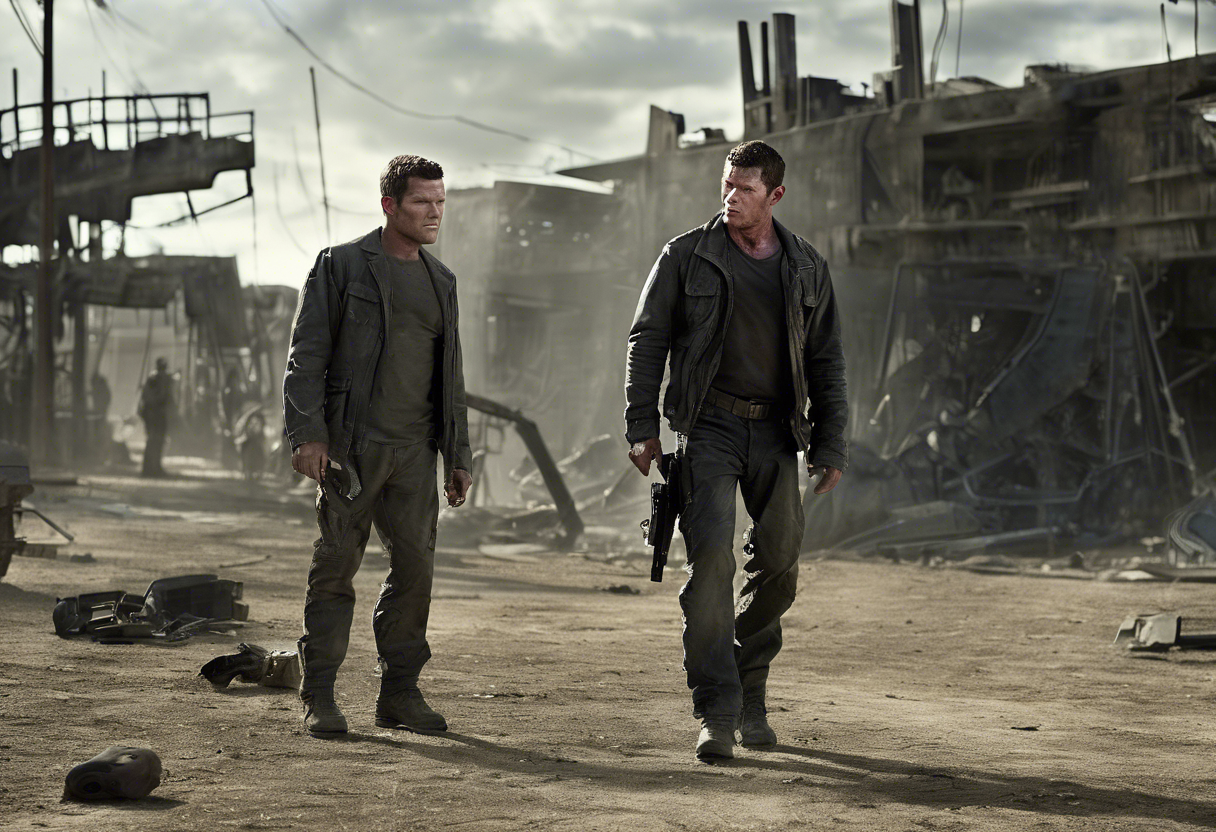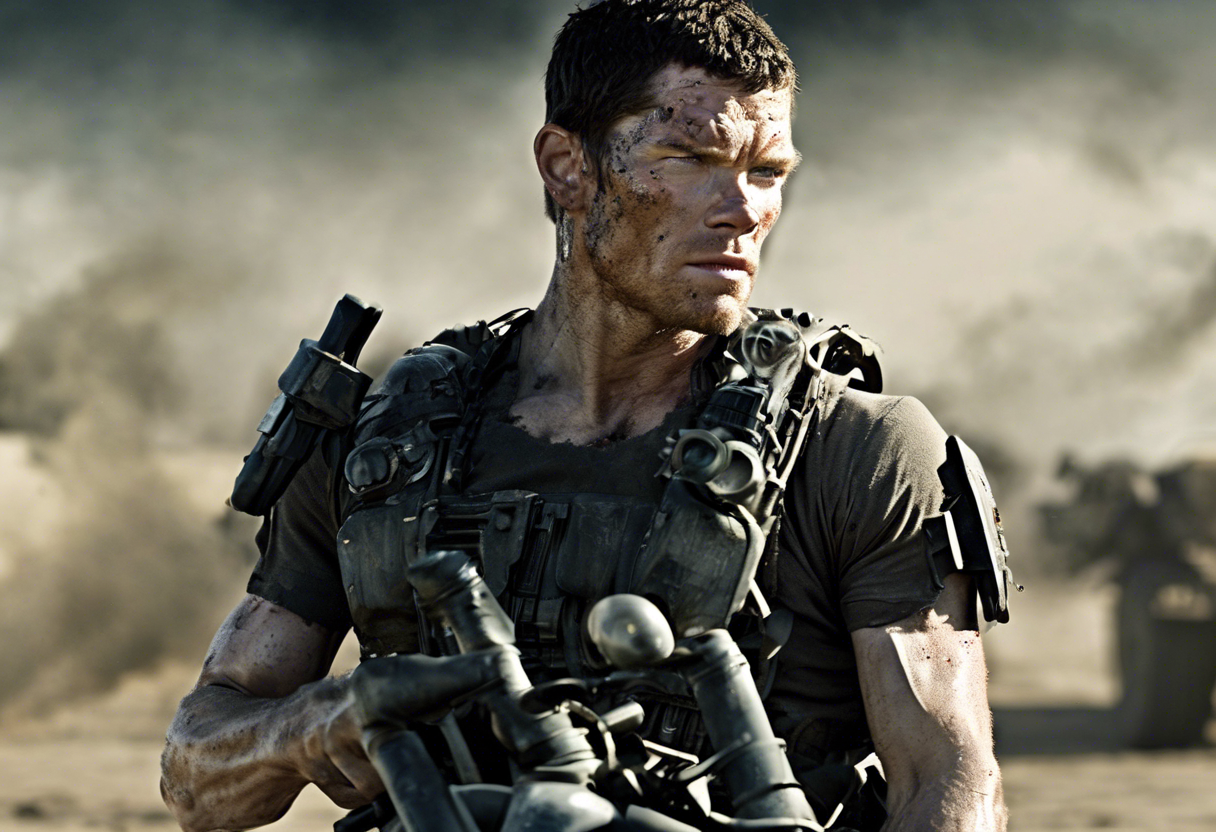Contents
Marcus Wright: The Hybrid Terminator of Terminator Salvation
Introduction
Marcus Wright is a pivotal character in the Terminator franchise, specifically introduced in the 2009 film Terminator Salvation. Portrayed by Sam Worthington, Marcus represents a unique blend of humanity and technology, making him a standout figure in the series. Originally a human sentenced to death for a crime, Marcus’s body was repurposed by Skynet, the artificial intelligence system governing the machines, after his execution. This transformation turned him into a hybrid cyborg, combining human emotions and memories with the physical capabilities of a Terminator, specifically referred to as a model T-800, though with distinct differences from the standard T-800 models[1][4].
Marcus’s character raises intriguing questions about identity, morality, and what it means to be human in a world dominated by machines. His story challenges viewers to reconsider the boundaries between humans and machines, adding a new layer of complexity to the Terminator narrative.
Role in the Story
In Terminator Salvation, Marcus Wright’s storyline is central to the plot. After his transformation, Marcus finds himself in a post-apocalyptic world where humans are fighting for survival against Skynet’s machines. He encounters Kyle Reese, a young boy who will eventually become John Connor’s father, and a mute child named Star. During a skirmish with Skynet’s machines, Kyle and Star are abducted, prompting Marcus to join forces with the human resistance to rescue them[4].
Marcus’s journey involves significant interactions with John Connor, the leader of the human resistance, and Blair Williams, a pilot who helps him escape after he is discovered to be a cyborg. Despite initial mistrust, Marcus proves his loyalty by saving John’s life and aiding in the rescue mission to save Kyle and other human prisoners from Skynet’s headquarters[4].
A critical turning point in Marcus’s story is when he learns that he was resurrected by Skynet to lure John into a trap. Refusing to accept this fate, Marcus tears out the hardware linking him to Skynet and decides to aid John in the mission. This act of defiance culminates in a final sacrifice where Marcus gives his heart to save John’s life, ensuring the continuation of the human resistance[4].
Character Analysis
Marcus Wright’s character is defined by his complex personality and motivations. Initially, he is portrayed as a condemned human with a troubled past, but his transformation into a cyborg adds layers to his identity. He grapples with the moral implications of being part human and part machine, leading to a deep emotional conflict. This internal struggle makes him a compelling and relatable character, as he navigates the blurred lines between his human past and his current cyborg existence[1][5].
Marcus’s strengths include his physical prowess and his ability to connect with both humans and machines, which is crucial in his mission to help the resistance. However, his flaws stem from his initial lack of understanding of his new form and his struggle to reconcile his past actions with his current state. Throughout the film, Marcus undergoes significant development, evolving from a character driven by confusion and self-doubt to one who makes heroic sacrifices for the greater good[1][5].
Themes and Symbolism
Marcus Wright embodies several key themes in Terminator Salvation. The most prominent is the theme of identity and humanity in a world dominated by machines. His hybrid nature challenges the traditional dichotomy between humans and machines, forcing characters and viewers to question what it means to be human. This theme is symbolized through Marcus’s retention of human emotions and memories despite his physical transformation into a cyborg[1][4].
Another significant theme is redemption. Marcus’s journey from a condemned human to a hero who sacrifices himself to save others is a powerful narrative of redemption. This arc highlights the possibility of change and the importance of human choices in defining one’s identity[5].
Cultural Impact
Marcus Wright has had a notable impact on the cultural landscape of science fiction. Despite mixed reviews for Terminator Salvation, Marcus’s character has been praised for his unique blend of humanity and technology. Fans appreciate the complexity he brings to the franchise, and his story has sparked discussions about the ethics of artificial intelligence and the nature of humanity[3].
In terms of adaptations or spin-offs, Marcus Wright’s character has not been directly reprised, but his concept has influenced other works in the science fiction genre. His hybrid nature and the themes associated with his character have contributed to the broader discourse on human-machine interactions in popular culture[1].
Critical Reception
The reception of Marcus Wright has been varied. Critics have praised Sam Worthington’s performance and the character’s emotional depth, but some have criticized the film’s overall execution and the handling of Marcus’s storyline. Despite this, Marcus remains a significant and memorable character in the Terminator franchise, with many fans appreciating his unique contribution to the series[3][4].
Legacy
Marcus Wright’s legacy lies in his enduring appeal as a complex and thought-provoking character. He represents a significant evolution in the Terminator series, challenging traditional notions of identity and humanity. His story continues to inspire discussions about the future of technology and human existence, making him a relevant figure in contemporary science fiction[1][5].
References
- https://www.youtube.com/watch?v=tXN51qobZ_E
- https://en.wikipedia.org/wiki/Terminator_(character_concept)
- https://comicvine.gamespot.com/forums/gen-discussion-1/terminator-marcus-wright-respect-thread-2053260/
- https://en.wikipedia.org/wiki/Terminator_Salvation
- http://scifichristianguy.blogspot.com/2012/04/reel-heroes-sam-worthington-as-marcus.html



